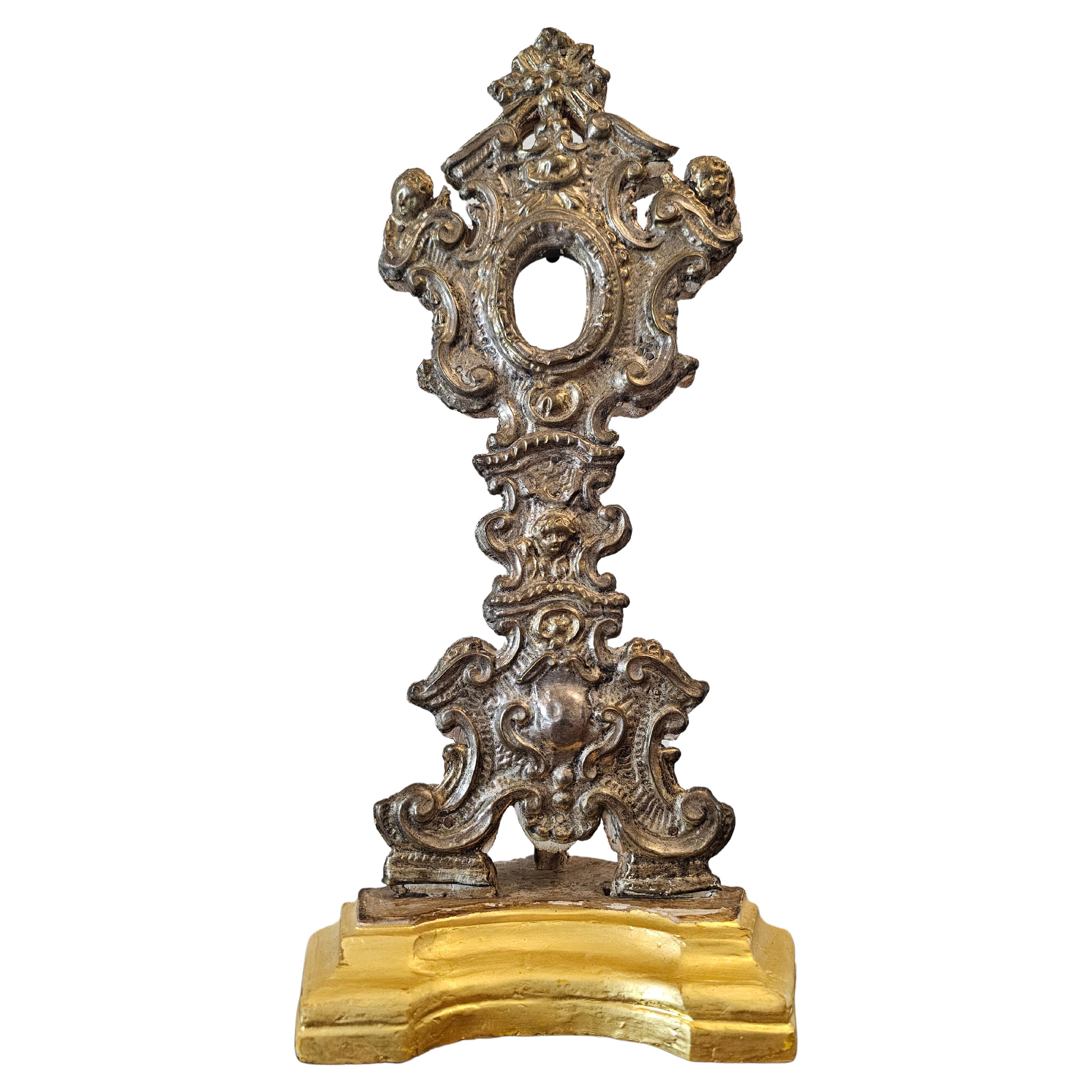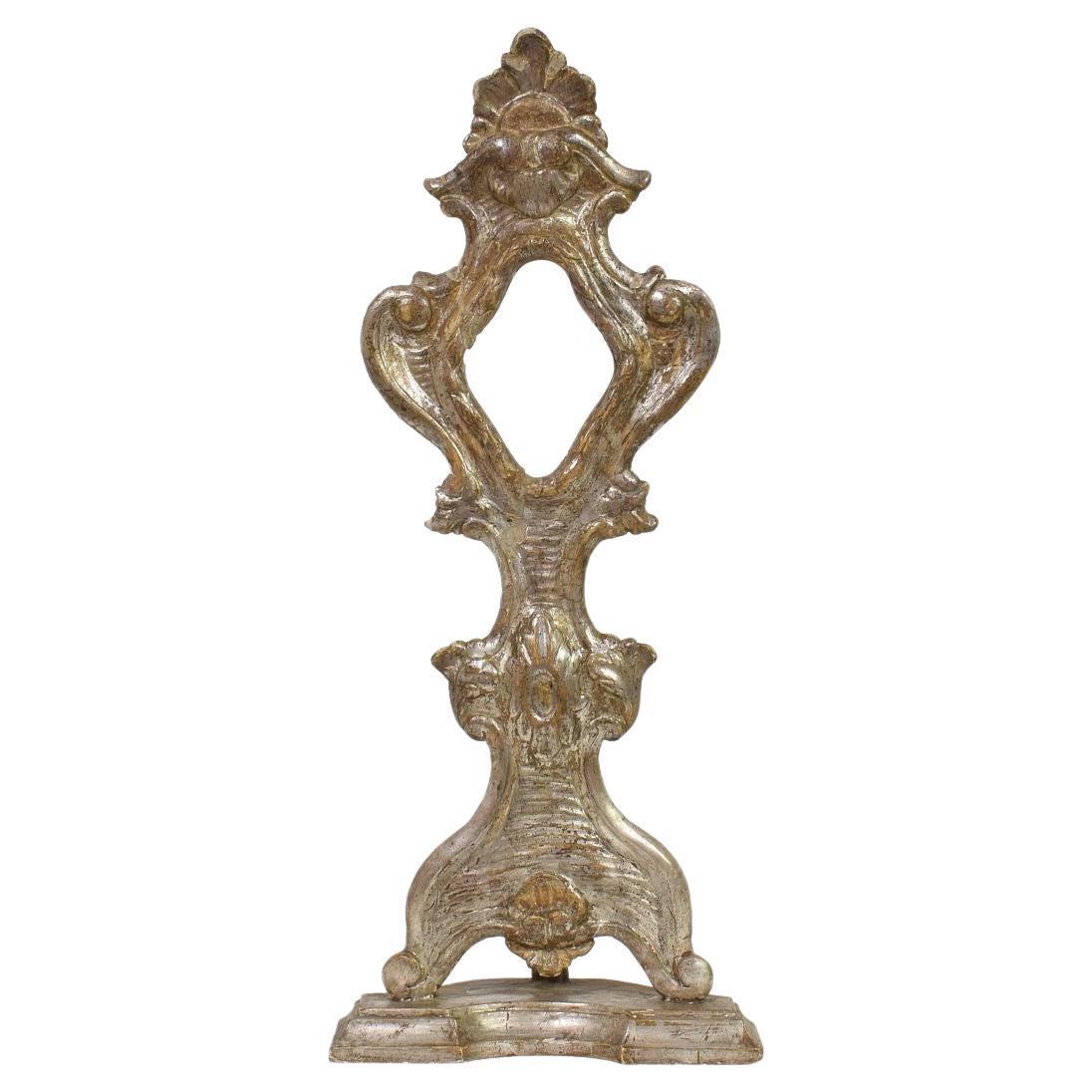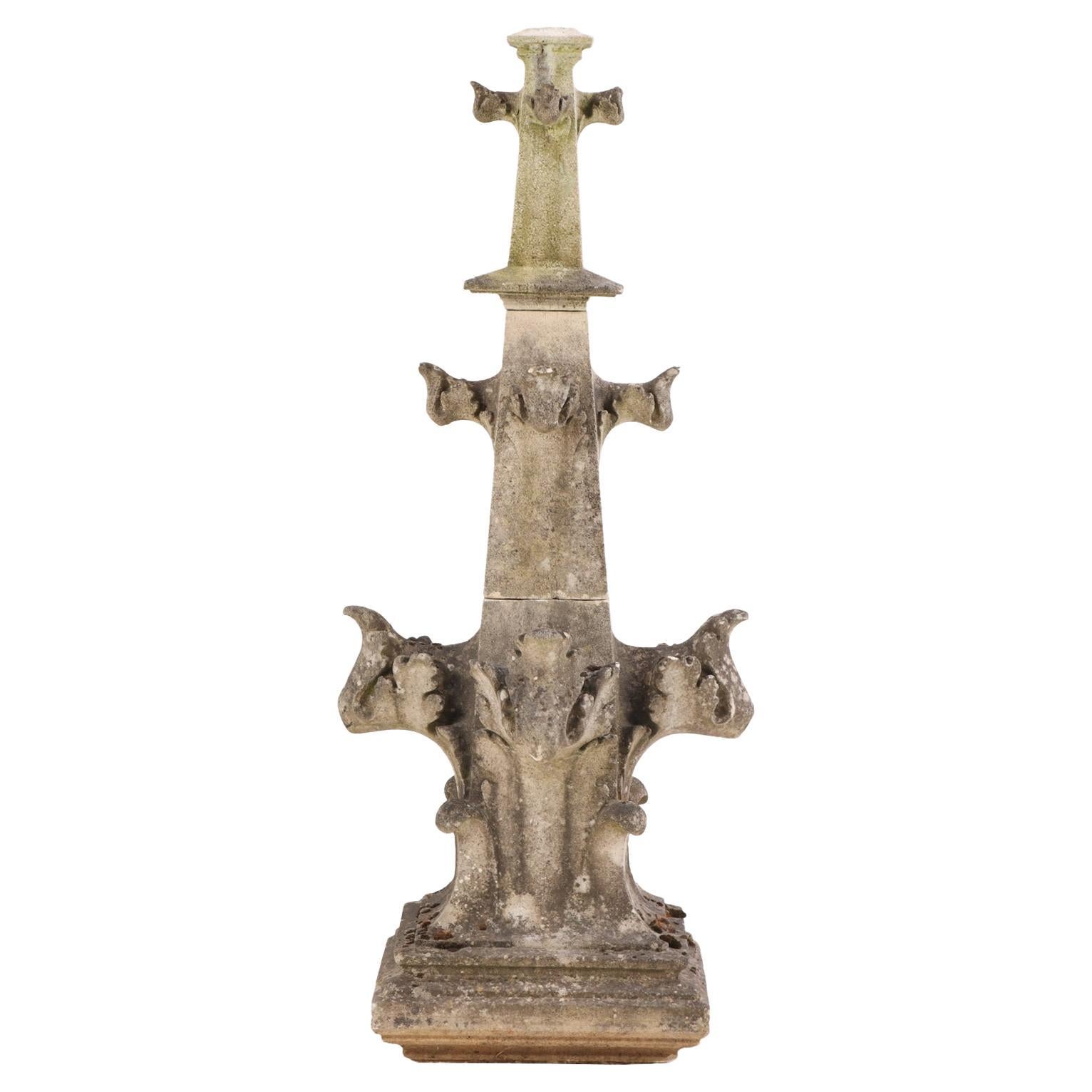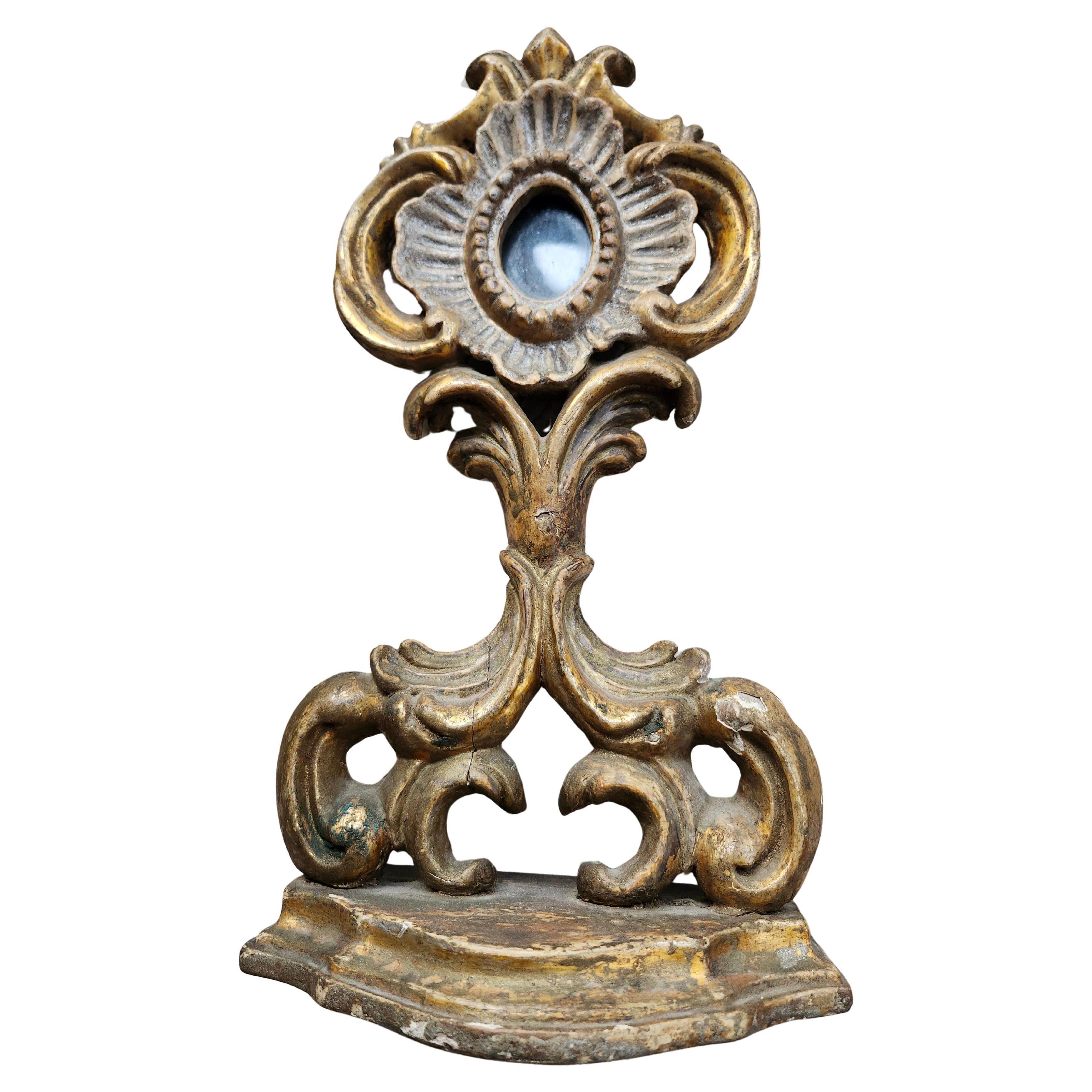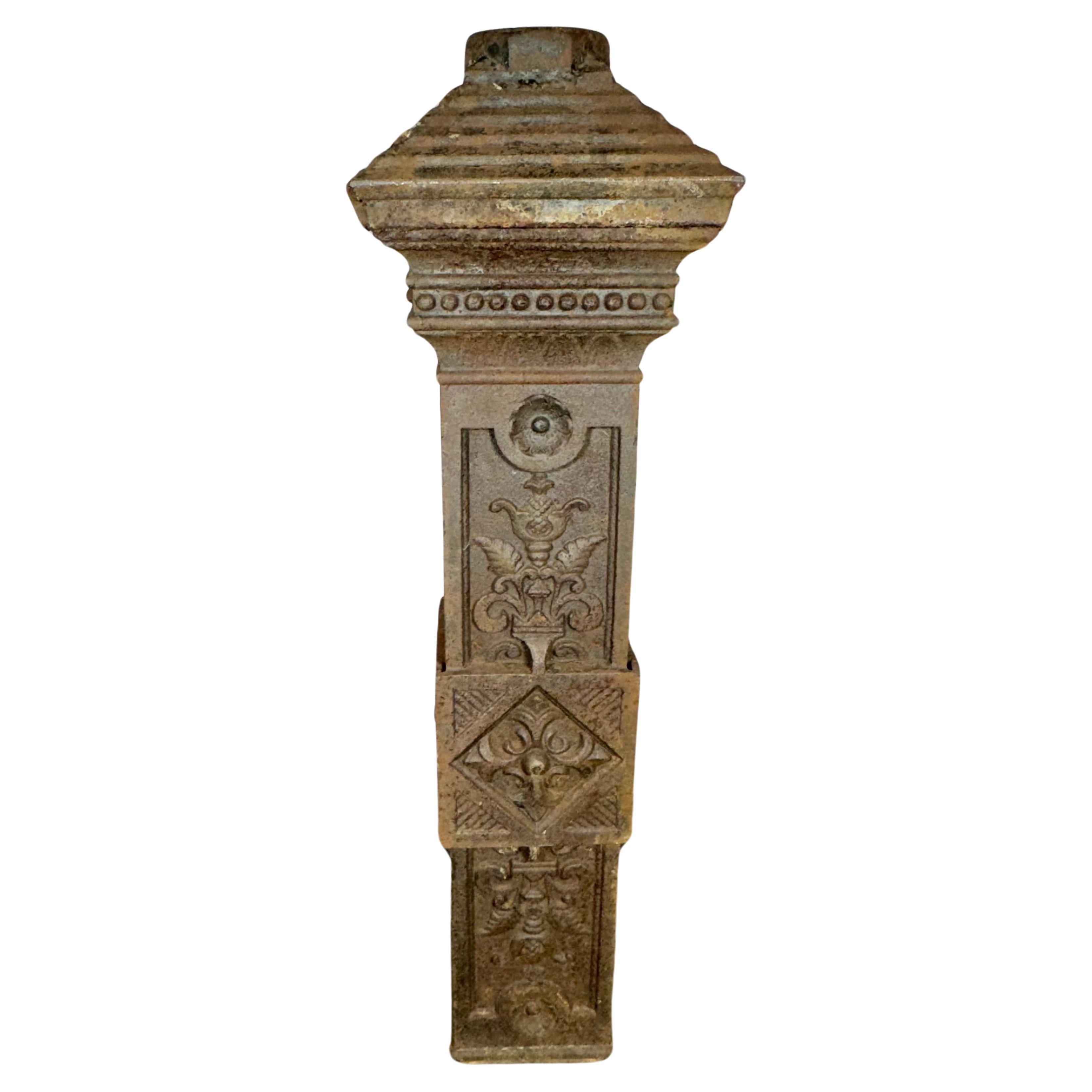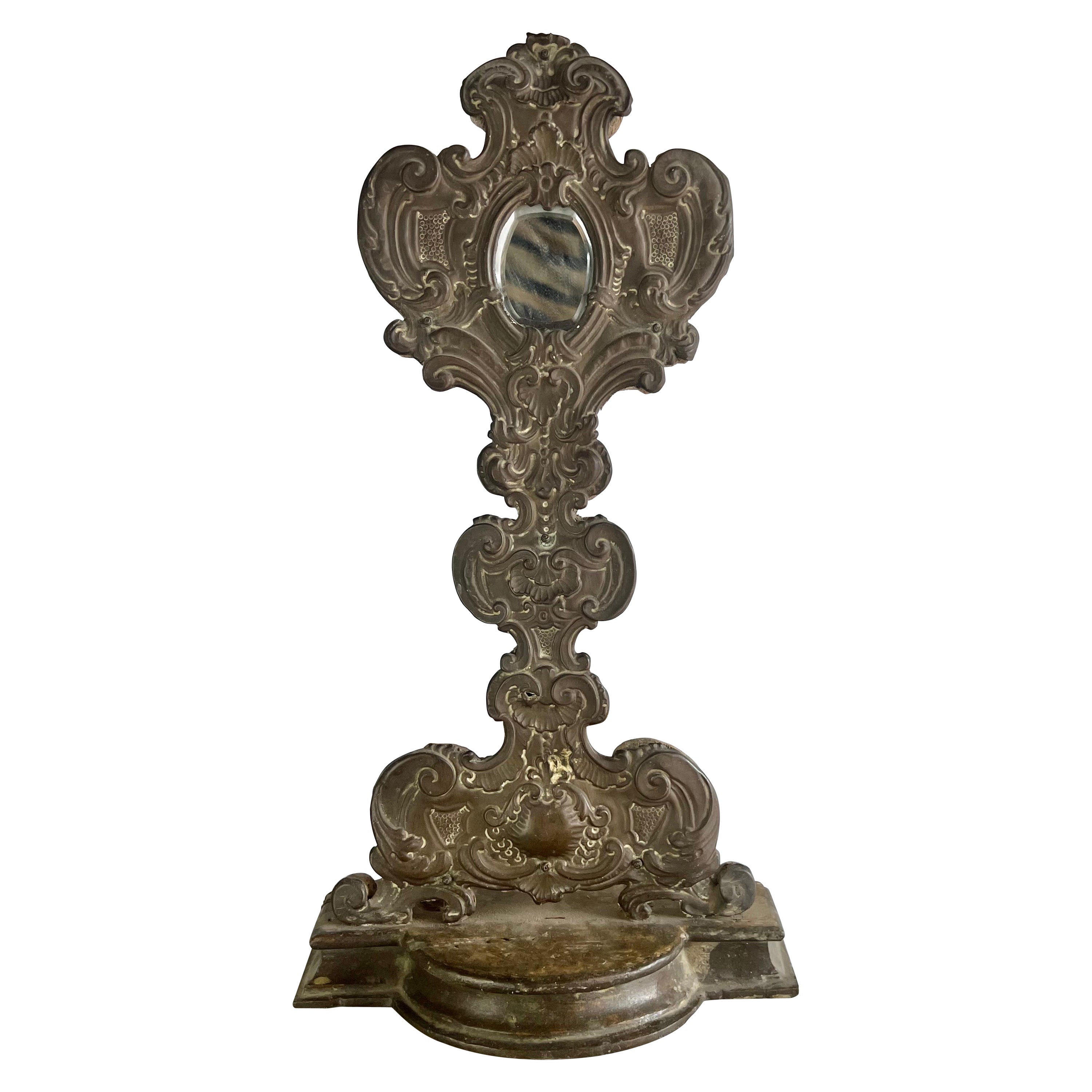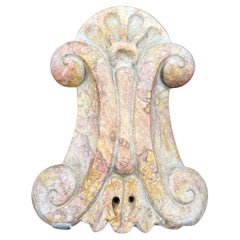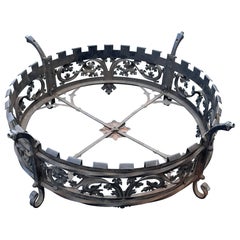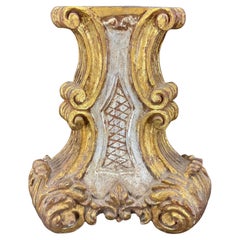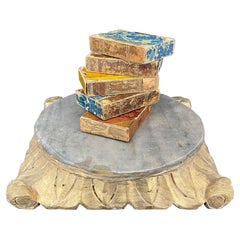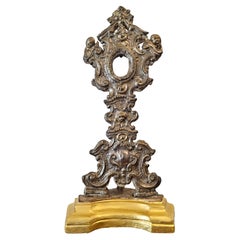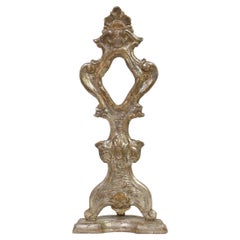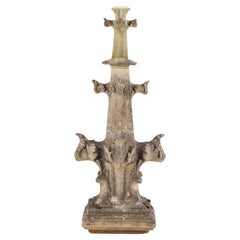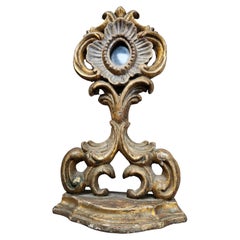Items Similar to European Religious Bronze Sculpture Fragment on 19th Century Marble Pedestal
Want more images or videos?
Request additional images or videos from the seller
1 of 17
European Religious Bronze Sculpture Fragment on 19th Century Marble Pedestal
$380
$67543% Off
£288.14
£511.8243% Off
€330.59
€587.2443% Off
CA$540.69
CA$960.4443% Off
A$586.53
A$1,041.8643% Off
CHF 308.43
CHF 547.8743% Off
MX$7,136.89
MX$12,677.3743% Off
NOK 3,855.88
NOK 6,849.2543% Off
SEK 3,636.57
SEK 6,459.6943% Off
DKK 2,468.29
DKK 4,384.4643% Off
About the Item
Religious Bronze Fragment Sculpture on a 19th Century Column Marble Pedestal. These two object have been "married" later, meaning they were two separate items put together at a later time.
- Dimensions:Height: 12.6 in (32.01 cm)Width: 6.6 in (16.77 cm)Depth: 3.9 in (9.91 cm)
- Style:Gothic (In the Style Of)
- Materials and Techniques:
- Place of Origin:
- Period:
- Date of Manufacture:1875
- Condition:Additions or alterations made to the original: Marble base and bronze fragment has been put together at a later time. Wear consistent with age and use. Minor losses. Minor fading.
- Seller Location:Haddonfield, NJ
- Reference Number:Seller: 357421stDibs: LU943436895862
About the Seller
5.0
Platinum Seller
Premium sellers with a 4.7+ rating and 24-hour response times
Established in 2010
1stDibs seller since 2012
2,066 sales on 1stDibs
Typical response time: <1 hour
- ShippingRetrieving quote...Shipping from: Haddonfield, NJ
- Return Policy
Authenticity Guarantee
In the unlikely event there’s an issue with an item’s authenticity, contact us within 1 year for a full refund. DetailsMoney-Back Guarantee
If your item is not as described, is damaged in transit, or does not arrive, contact us within 7 days for a full refund. Details24-Hour Cancellation
You have a 24-hour grace period in which to reconsider your purchase, with no questions asked.Vetted Professional Sellers
Our world-class sellers must adhere to strict standards for service and quality, maintaining the integrity of our listings.Price-Match Guarantee
If you find that a seller listed the same item for a lower price elsewhere, we’ll match it.Trusted Global Delivery
Our best-in-class carrier network provides specialized shipping options worldwide, including custom delivery.More From This Seller
View AllLate 19th-Century French Decorative Marble Fragment Sculpture
Located in Haddonfield, NJ
This 19th-Century French marble fragment is a charming piece of history as well as a striking standalone decorative accent. As found in a flea market on the Belgium border to France,...
Category
Antique Late 19th Century French Rococo Abstract Sculptures
Materials
Marble
French Architectural Crown Sculpture Fragment, 1910's
Located in Haddonfield, NJ
As found in France, an exquisite Antique French Architectural Iron Fragment. Originally it was a chandelier. The fabulous patina shows off the rich history and prior use and will mak...
Category
Vintage 1910s French French Provincial Architectural Elements
Materials
Metal, Wrought Iron
Late 19th-Century Italian Gilt Fragment Architectural Sculpture
Located in Haddonfield, NJ
Large Italian Gilded Wood Rococo Fragment or Sculpture. Beautiful Rococo design constructed in gilt as well as silver leaf wood and ornamented intricate scroll motifs throughout. Thi...
Category
Antique Late 19th Century Italian Rococo Architectural Elements
Materials
Silver Leaf
Large 20th Century Wooden Architectural Pedestal Stand Centerpiece
Located in Haddonfield, NJ
Fantastic European wood pedestal with layered gold paint. This substantial table pedestal stand is certainly a versatile piece with many uses including on a kitchen counter, or the c...
Category
Mid-20th Century European Baroque Pedestals
Materials
Wood, Paint
French 19th Century Black And Gilded Twisted Baroque Style Pedestal
Located in Haddonfield, NJ
French 19th Century Black And Gilded Twisted Baroque Style Pedestal
Category
Antique Mid-19th Century French Baroque Pedestals
Materials
Oak
French Small Architectural Gilded Wall Fragment Shelf
Located in Haddonfield, NJ
As found in a French market, this ceramic gilded wall corbel or shelf is beautifully constructed and ornamented with a floral ornament in the center. This Louis XVI gilt piece would ...
Category
Mid-20th Century French Louis XVI Wall Brackets
Materials
Paint, Ceramic
You May Also Like
18th/19th Century Italian Baroque Silvered Metal Altar Monstrance Reliquary
Located in Forney, TX
A stunning antique Italian Baroque style silvered metal gilded wood monstrance reliquary. circa 1770-1820
Handmade in Italy in the late 18th / early 19th century, commissioned by the church to display an important religious relic, sculptural painted wood form, mounted with decorative silver repousse metal facing, open oval window where the philatory relic was once housed, rising on a gold gilt painted shaped plinth base.
Dimensions: (approx)
17" High, 8" Wide, 5" Deep, 1.25lbs
History:
Reliquaries (also referred to as a shrine or châsse in French), are containers used to protect and display relics. A portable reliquary may be called a fereter, and a chapel in which it is housed a feretory. A monstrance, also known as an ostensorium (or an ostensory), is a vessel used in Roman Catholic, Old Catholic, High Church Lutheran and Anglican churches for the display on an altar of some object of piety, such as the consecrated Eucharistic host during Eucharistic adoration or Benediction of the Blessed Sacrament. It is also used as reliquary for the public display of relics of some saints.
The use of reliquaries became an important part of Christian practices from at least the 4th century, initially in the Eastern Churches, which adopted the practice of moving and dividing the bodies of saints much earlier than the West, probably in part because the new capital of Constantinople, unlike Rome, lacked buried saints. Relics are venerated in the Oriental Orthodox, Eastern Orthodox, Roman Catholic and some Anglican Churches. Reliquaries provide a means of protecting and displaying relics. While frequently taking the form of caskets, they range in size from simple pendants or rings to very elaborate ossuaries.
The relics were enshrined in containers crafted of or covered with gold, silver, gems, and enamel. These objects constituted a important form of artistic production across Europe and Byzantium throughout the Middle Ages.
Many were designed with portability in mind, often being exhibited in public or carried in procession on the saint's feast day or on other holy days. Pilgrimages often centered on the veneration of relics. The faithful often venerate relics by bowing before the reliquary or kissing it; those churches which observe the veneration of relics distinguish between the honor given to the saints and the worship that is due to God alone.
Sixteenth-century reformers such as Martin Luther opposed the use of relics since many had no proof of historical authenticity and objected to a cult of saints. Many reliquaries, particularly in northern Europe, were destroyed by Calvinists or Calvinist sympathizers during the Reformation...
Category
Antique Early 19th Century Italian Baroque Sculptures and Carvings
Materials
Metal
Italian 18th Century Hand Carved And Silvered Wooden Baroque Reliquary
Located in Buisson, FR
Wonderful and detailed reliquary holder with its beautiful weathered original silver,
Italy, circa 1750. Weathered and small losses and old repairs.
Category
Antique 18th Century Italian Baroque Religious Items
Materials
Wood
$807 Sale Price
50% Off
A Belgian carved stone finial, C. 1850.
Located in Philadelphia, PA
This finely detailed Gothic Revival finial or spire will be a stately addition to your garden or serve as a statement for your interior. The changing profile with its layers of folia...
Category
Antique Mid-19th Century Belgian Gothic Revival Garden Ornaments
Materials
Stone
18th Century Italian Hand Carved Baroque Giltwood Reliquary
Located in Port Jervis, NY
18th century reliquary from northern Italy. Giltwood, polychromed and looks to be hand carved from one piece of wood. Mortised thru the base.
A reliquary was used to house a religio...
Category
Antique 1750s Italian Baroque Abstract Sculptures
Materials
Glass, Giltwood
Late 19TH Century Cast Iron Lamp Post Base heavy decorative floral relief
Located in Buffalo, NY
Late 19TH Century Cast Iron Lamp Post Base heavy decorative floral relief ..Wonderful design,, 4-sided, (MATCHING) one panel removable (access pane...
Category
Antique 1890s American Gothic Revival Architectural Elements
Materials
Iron
19th C. Italian Wood & Metal Embossed Relicquary
Located in Los Angeles, CA
19th Century wood & embossed metal relicquary. The piece originally sat on the alter of the church holding relics. Mirror has been placed where the glass originally held the relics.
Category
Antique 19th Century Italian Baroque Religious Items
Materials
Metal
$520 Sale Price
56% Off
More Ways To Browse
19th Century Marble Pedestal
Fragment Sculpture
Marble Fragment
Fragment Antique Sculpture
Gold Fragment
Bronze Garden Sculpture
Marble Sculpture On Pedestal
Antique Fragment Marble
Marble Sculpture Fragment
Religious Bronze Sculpture
Gothic Architectural Fragment
Gothic Fragment
Gothic Gargoyle
Hemiksem Tiles
Uniquities Architectural Antiques
Building Spires
Carved Finials
Carved Italian Finials
